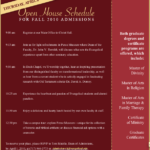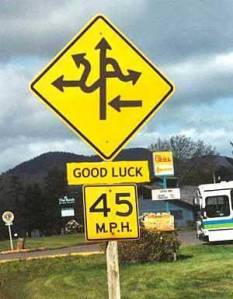
I got this on Facebook from Susan Sims. Me thinks she pulled it from somewhere online. If anyone knows the proper source for citation, give me a shout out.
I thought this picture just perfectly captured what happens on my insides when I get suddenly horrified or surprised. Notice the weird hand gesture of fright. Classic.
In a rather unrelated note, due to my employment research, I found this, and I thought it would make a fine read, even for those not in recovery. Please note the restorative humility it takes to get well seen in these steps. It makes one wonder how many of us are all that well, right?
(I welcome your thoughts and comments!)
12 Steps of Alcoholics Anonymous (& Biblical References) by Alcoholics Victorious
| 1. | We admitted we were powerless over alcohol … that our lives had become unmanageable. | “I know that nothing good lives in me, that is, in my sinful nature. For I have the desire to do what is good, but I cannot carry it out.” (Romans 7:18) |
| 2. | Came to believe that a Power greater than ourselves could restore us to sanity. | “… my grace is sufficient for you, for my POWER is made perfect in weakness.” (2 Corinthians 12:9) ..for it God Who works in you to will and act according to His good purpose.. (Phil. 2:13) |
| 3. | Made a decision to turn our will and our lives over to the care of GOD as we understood Him. | “… If anyone would come after me, he must deny himself and take up his cross daily and follow me.” (Luke 9:23**) |
| 4. | Made a searching and fearless moral inventory of ourselves. | “Let us examine our ways and test them, and let us return to the Lord.” (Lamentations 3:40) |
| 5. | Admitted to GOD, to ourselves and to another human being the exact nature of our wrongs. | “Therefore confess your sins to each other and pray for each other so that you may be healed.” (James 5:16) |
| 6. | Were entirely ready to have GOD remove all these defects of character. | “If you are willing and obedient, you will eat the best from the land.” (Isaiah 1:19) |
| 7. | Humbly asked Him to remove all our shortcomings. | “Humble yourselves before the Lord, and He will lift you up.” (James 4:10) |
| 8. | Made a list of all persons we had harmed and became willing to make amends to them all. | “Therefore, if you are offering your gift at the altar and there remember that your brother has something against you, leave your gift there in front of the altar. First go and be reconciled to your brother; then come and offer your gift.” (Matthew 5:23, 24**) |
| 9. | Made direct amends to such people wherever possible, except when to do so would injure them or others. | Give and it shall be given you. A good measure, pressed down, shaken together and running over, will be poured into your lap. For with the measure you use, it will be measured to you.” (Luke 6:38**) |
| 10. | Continued to take personal inventory and when we were wrong, promptly admitted it. | “For by the grace given me I say to every one of you: Do not think of yourself more highly than you ought, but rather think of yourself with sober judgment, in accordance with the measure of faith GOD has given you.” (Romans 12:3) |
| 11. | Sought through prayer and meditation to improve our conscious contact with GOD as we understood Him, praying only for knowledge of His will, and the power to carry that out. | “May the words of my mouth and the meditation of my heart be pleasing in your sight, O Lord, my Rock and my Redeemer.” (Psalm 19:14) “Let the word of Christ dwell in you richly…” (Col. 3:16) |
| 12. | Having had a spiritual awakening as the result of these steps, we tried to carry this message to alcoholics, and practice these principles in all our affairs. | “Brothers, if someone is caught in a sin, you who are spiritual should restore him gently. But watch yourself, or you also may be tempted. Carry each other’s burdens, and in this way you will fulfill the law of Christ.” (Galatians 6:1-2) **The words of Christ |






